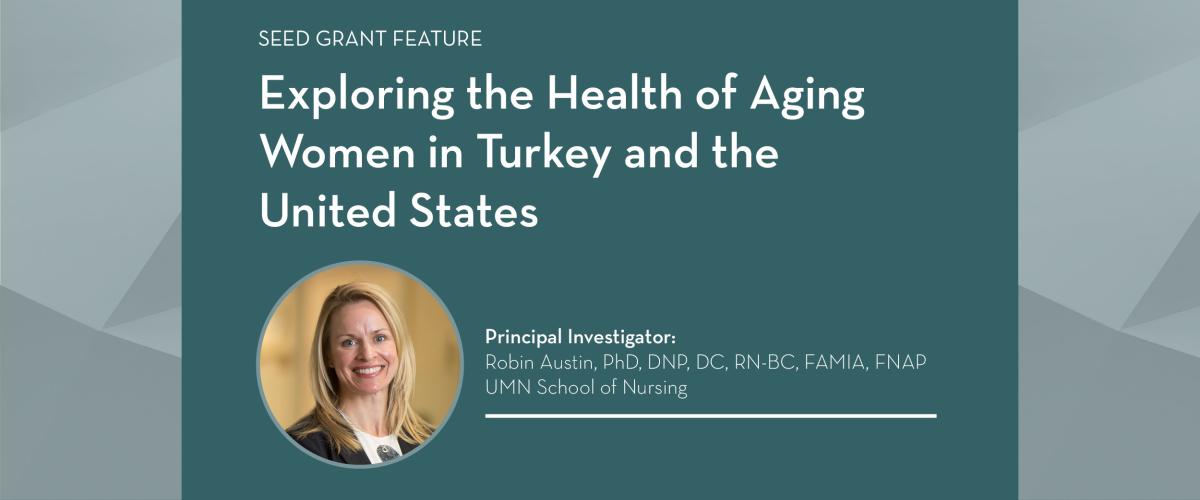Exploring the Health of Aging Women in Turkey and the United States
At the doctor’s office, patients are often asked what’s wrong. Robin Austin wants healthcare providers to start asking about what’s going well, too.
Austin, PhD, DNP, DC, RN-BC, FAMIA, FNAP, is a 2023 Global Health Seed Grant for Interdisciplinary Research recipient who will use her award to study the whole-person health and resilience of aging women in the United States and Turkey. And while she wants to collect data on health obstacles, gleaning what’s working for this population is just as important, she said.
“We really want to focus on the resilience component. Because the research is showing that older adults have a lot of resilience,” said Austin. “How we bring that into the clinical conversation would be the question I’d like to focus on in the future. Because we certainly ask a lot about what’s wrong. But how do we say, what might be going well and how can we do more of that?”
Austin, an assistant professor at UMN’s School of Nursing, is working with colleagues in the United States and Turkey and will recruit women aged 65 and older from both countries to learn more about their health challenges and strengths. The data collected will be used to better support aging women in the sample populations and, potentially, around the world.
Study participants will be asked to complete a questionnaire via an online application that will ask questions about their “whole-person health,” meaning variables other than just physiological wellbeing. The survey will ask, for instance, if the women are getting enough sleep, have strong social connections and access to food and transportation.
“When we think of whole-person health, it really encompasses where the person lives and works and also their mental health,” said Austin.
The hope is that by gauging what obstacles participants face—in addition to what’s going well—the study authors can work with local organizations to ensure needed services are available to community members.
The survey will also include questions about participants' ability to engage with their faith-based community and connect with other community members. If women who take the survey report strong social connections, Austin’s team will work with local communities to ensure social resources stay in place; if scores in this area are low, it lets Austin know work needs to be done locally to foster community for older adults.
“We really want to know if there are ways we can leverage community relationships or other things that are going well for older women that we could use to help offset health challenges later,” said Austin.
Current demographics make clear the need for the research: the number of women aged 65 and older is predicted to double by 2060 in the United States. In Turkey, the elderly population is projected to make up nearly a quarter of the country’s residents by 2060.
Austin’s project is a result of the Center for Global Health and Social Responsibility’s collaboration with the Building Interdisciplinary Research Careers in Women’s Health (BIRCWH) Program from the Center for Women’s Health Research.
As part of CGHSR’s Global Women’s Health initiative, the goal of the partnership is to create more opportunities in interdisciplinary research involving women’s health, including aging.
“The BIRCWH program and Center for Women's Health Research appreciate the unique training and career development opportunity this partnership has created,” said Kait Macheledt, MPH, research manager at BIRCWH.
“We are able to not only provide the funding for a seed grant but also expand the research career development opportunities for the awarded scholar to now include both disciplines of women's health and global health.”
